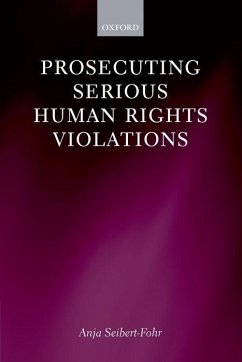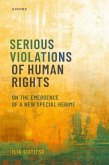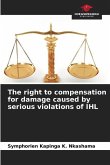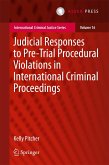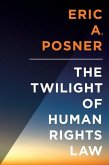Criminal punishment is increasingly seen as a necessary element of human rights protection. There is a growing conviction at the international level that those responsible for the most serious crimes should not go unpunished. Although there is a wealth of legal writing on international criminal law, an extensive analysis is still needed of the questions why and to what extent criminal prosecution is a necessary means of human rights protection at the domestic level. This book is the
first to examine comprehensively the duty to prosecute serious human rights violations under the International Covenant on Civil and Political Rights, the American and European Conventions on Human Rights, and customary international law. It does so by exploring the phenomena of impunity and
amnesties. These issues are particularly relevant for post-conflict situations in which it is often argued that criminal punishment threatens peace and reconciliation. The question of how to deal with post-conflict justice under international human rights law is therefore a continuing theme throughout the book.
Apart from post-conflict justice the text also considers the relevance of criminal measures in times of peace by exposing flaws in the criminal legislation and in the conduct of criminal procedure. With its survey of the relevant human rights instruments and jurisprudence, Prosecuting Serious Human Rights Violations is placed at the interface of international criminal law and international human rights. The book analyses the rapidly growing body of human rights case law, dealing with
criminalization, prosecution and punishment of serious human rights violations. It identifies and critically examines the standards for the conduct of criminal proceedings developed by the European and Inter-American Courts of Human Rights and the UN Human Rights Committee, providing a unique reference tool
for scholars and practitioners working in this area of law. It also describes the standards for criminal law under the Conventions Against Genocide, Torture, and Enforced Disappearances.
As the analysis of pertinent case law reveals shortcomings in the current conceptualization of the prosecution of human rights violations, the author develops a solid theoretical framework for future jurisprudence. By evaluating the relationship between criminal law and the protection of human rights, the book elucidates not only the potential but also the limits of the role human rights law can play in the emerging concept of international criminal justice.
Hinweis: Dieser Artikel kann nur an eine deutsche Lieferadresse ausgeliefert werden.
first to examine comprehensively the duty to prosecute serious human rights violations under the International Covenant on Civil and Political Rights, the American and European Conventions on Human Rights, and customary international law. It does so by exploring the phenomena of impunity and
amnesties. These issues are particularly relevant for post-conflict situations in which it is often argued that criminal punishment threatens peace and reconciliation. The question of how to deal with post-conflict justice under international human rights law is therefore a continuing theme throughout the book.
Apart from post-conflict justice the text also considers the relevance of criminal measures in times of peace by exposing flaws in the criminal legislation and in the conduct of criminal procedure. With its survey of the relevant human rights instruments and jurisprudence, Prosecuting Serious Human Rights Violations is placed at the interface of international criminal law and international human rights. The book analyses the rapidly growing body of human rights case law, dealing with
criminalization, prosecution and punishment of serious human rights violations. It identifies and critically examines the standards for the conduct of criminal proceedings developed by the European and Inter-American Courts of Human Rights and the UN Human Rights Committee, providing a unique reference tool
for scholars and practitioners working in this area of law. It also describes the standards for criminal law under the Conventions Against Genocide, Torture, and Enforced Disappearances.
As the analysis of pertinent case law reveals shortcomings in the current conceptualization of the prosecution of human rights violations, the author develops a solid theoretical framework for future jurisprudence. By evaluating the relationship between criminal law and the protection of human rights, the book elucidates not only the potential but also the limits of the role human rights law can play in the emerging concept of international criminal justice.
Hinweis: Dieser Artikel kann nur an eine deutsche Lieferadresse ausgeliefert werden.

